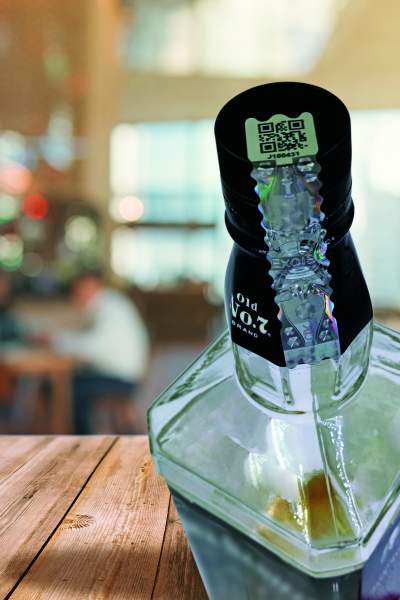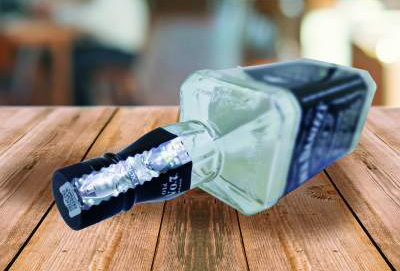What is the impact of spurious liquor industry for the government, people and the IMFL industry?
Illicit trade in alcohol undermines sustainable economic growth. Collectively, it affects all the stake holders in society in various terms. While the industry and Government lose revenue, it is the consumer who is impacted the most as illicit trade in liquor poses a serious threat to consumer health. Poor quality or spurious liquor can cause death and serious illness, as seen in connection with several incidents of hooch tragedy in India. According to various media reports more than 150 persons died in India due to hooch tragedies in year 2019.
 Excise Duty which is an important source of revenue is continually under threat from the practise of illicit trade. Considerable amount of money which could be used to benefit the government services of a country are being diverted to the pockets of criminals participating in illegal trading. However, more than loss of tax revenue, it could costs Government loss of image/goodwill. The hooch tragedies occur due to illicit liquor consumption eroded the image of state governments which create challenge for state government to ensure consumer confidence.
Excise Duty which is an important source of revenue is continually under threat from the practise of illicit trade. Considerable amount of money which could be used to benefit the government services of a country are being diverted to the pockets of criminals participating in illegal trading. However, more than loss of tax revenue, it could costs Government loss of image/goodwill. The hooch tragedies occur due to illicit liquor consumption eroded the image of state governments which create challenge for state government to ensure consumer confidence.
How can the government streamline the industry to benefit the poorer section of society to get affordable liquor at a price which will deter rampant drinking and the alcobev industry should not be labeled as a sin industry?
There is a direct link between prices and consumption. Post hooch tragedy in Uttar Pradesh, the Department set up a committee, which found that poorer section are using smuggled liquor, as it was available at almost half of the price of Government Country Liquor bottles. This will continue to be an area where careful thought is needed in order to preserve a balance.
What are the challenges of fighting the illicit liquor trade? How can the FSSAI regulate the quality of liquor sold?
Illicit alcohol is prevalent in both developed and developing countries, with no country immune to this threat. For example, the UK government lost £1.3 billion in excise tax revenue in the period 2015-16, and Dutch authorities estimate the annual revenue losses from illicit trade in alcohol at €100 million. Liquor bootlegging in New York City alone is estimated to have cost the city US$1 billion in lost taxes over the past 15 years. The illicit alcohol products are sold as either counterfeits of genuine brands or are unlabelled (Source: TRACEIT.ORG). When producing counterfeits, the forgery goes beyond the product’s label, often including bottle designs and caps.
In India, State Excise Department faces various challenges such as
a) How to combat smuggling and illicit liquor
b) How to ensure fool proof labeling and supply chain? How to ensure consumer confidence
c) How to increase excise revenue and the most important the problem of identification / authentication – How to differentiate fake liquor bottles from genuine?
The Food Safety and Standards Authority of India (FSSAI) had last year issued a regulation on alcoholic beverages and the same became effective from April 1. As per this regulation, all liquor bottles need to carry a statutory warning that “consumption of alcohol is injurious to health. Be safe-don’t drink and drive”. So far, it was primarily regulated by excise commissioners and they were only looking at alcoholic content and the toxic substances in alcohol. Now, there are far more elaborate standards that are benchmarked with the global standards and in certain cases, they have taken the Indian context also in consideration. In addition to excise commissioners, the food safety commissioners would also look into the enforcement of these standards.
What role can the excise department play to boost revenue to ensure a win-win situation for the government, the consumer and the industry?
Excise Departments faces various challenges. The key from these are revenue enhancement & protection, as well as to ensure person get genuine products. Anti-Counterfeiting solutions like TAX Stamps (Excise Adhesive Label) plays an important role. We believe that State Excise Departments need to study. he importance of Tax Stamps in the global context and apply such solutions in India.
 In India, Excise Department need to think about TAX Stamps as tool beyond tax collection tools. The existence of cheaper, less-sophisticated, less effective stamps and marks potentially dilute the value proposition around their use as platforms to implement the global guidelines. Instead of using it is a mere product, they need to reframe their work on their Tax Stamp Programme as an opportunity for consumer and industry empowerment.
In India, Excise Department need to think about TAX Stamps as tool beyond tax collection tools. The existence of cheaper, less-sophisticated, less effective stamps and marks potentially dilute the value proposition around their use as platforms to implement the global guidelines. Instead of using it is a mere product, they need to reframe their work on their Tax Stamp Programme as an opportunity for consumer and industry empowerment.
The new generation Tax Stamps with technological innovation in security printing, serialised coding, data processing and mobile communications, can be into sophisticated devices with additional roles that related to product authentication, supply chain security & data intelligence. This will ensure and help State Excise Department in building their policy towards reduced consumption and more revenue.
Will a rationing system deter excessive drinking?
We think this differ to case to case basis and lots depend on State Excise Policy. About half a century ago, broad restrictions on who could purchase alcoholic beverages were fairly common. The most extensive of such systems was the Bratt rationing scheme in Sweden in force until 1955, which assigned a quantitatively defined upper limit for spirits purchases per person with different rations for males and females and for younger age groups. Studies have shown that rationing systems in Greenland, Poland and Sweden reduced alcohol-related harm (Anderson & Baumberg, 2006). In Spitzbergen (Norway) there still exists a rationing system for purchases of alcoholic beverages. However, these research are conducting long time back and need to be done in current geographical scenario.
Source: http://www.euro.who.int/__data/assets/pdf_file/0011/191369/9-Availability-of-alcohol.pdf?ua=1
Can cheap liquor manufacturing companies create a fund to help families affected by alcoholics?
Yes, it can be done in partnership with State Excise Department and various NGO. But, before that there is a need of creating & raising awareness at mass level. There is a need to take preventive as well as long term strategic goals. As preventive steps, there is a need of building an eco-systems where consumer get genuine and authentic product and must be involved in authentication process. In longer term strategy, lot of work need to be done towards liquor standardisation, monitoring of ethyl alcohol etc. Even today, in our hospitals are not well trained for treatment for people suffering from hooch incidents. Post the hooch tragedy in Uttar Pradesh, the Government committed find that there is a lack of guidelines in Hospitals for treatment of patients consuming spurious liquor.
Is banning of illicit liquor the way forward? (I think he means about Prohibition of liquor)?
Prohibition is not the only answer. Many times, prohibition leads to increased illicit liquor business. For example, liquor is prohibited in Gujarat, however, according to a recent study 38% youth in Gujarat consumes alcohol. Other than this, 12% people are consuming other forms of drugs such as cannabis. In last two years, police had seized liquor valued `254 crore. The Government had confirmed that due to prohibition there is an increase in smuggling from neighbouring state. In last two years total case reported 1,32,415 country liquor, 29,989 IMFL liquor. Now the state government is demanding compensation cost from central as they are losing `15,000 crore annually due to prohibition. Similarly in other prohibited state Bihar, the sale of other drugs products has increased significantly. As per latest report from Narcotics Control Bureau, Bihar top the chart in consumption of opium and hashish. In our country 16 crore people consume alcohol whilst 3.1 crore people use cannabis. India needs a comprehensive national policy to tackle alcohol and other forms of additives.


